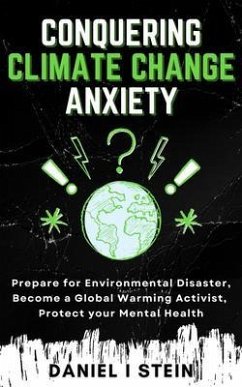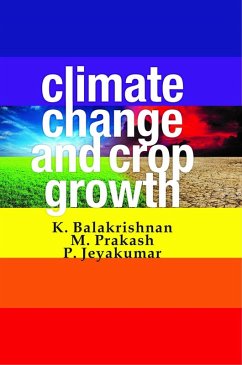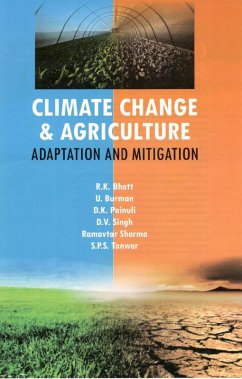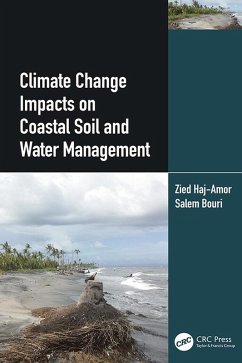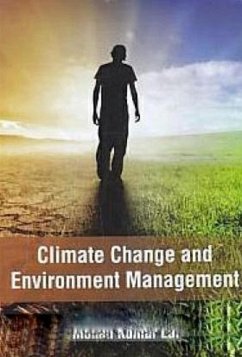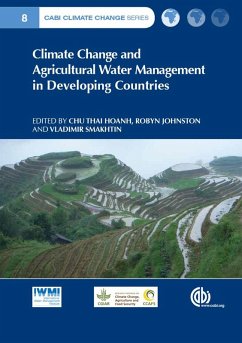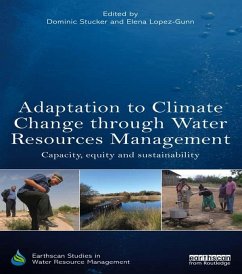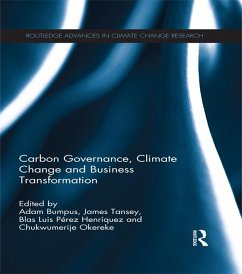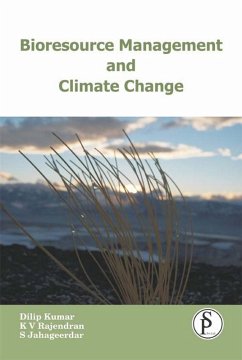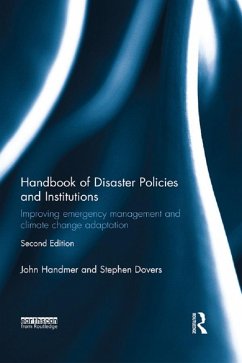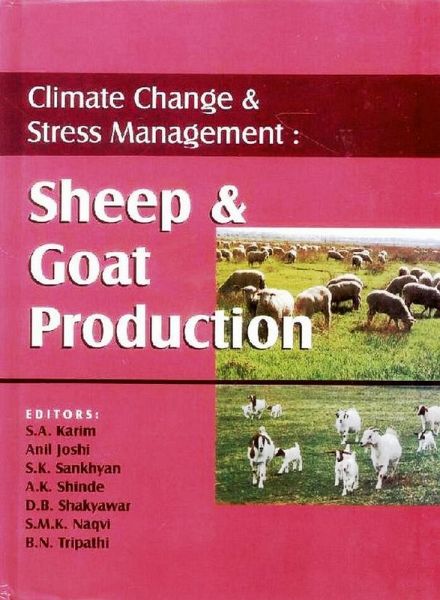
Climate Change and Stress Management (eBook, ePUB)
Sheep and Goat Production

PAYBACK Punkte
198 °P sammeln!
Sheep and goat rearing is a traditional occupation of small, marginal farmers and landless labourers in semiarid, arid, hilly and mountain regions of the country, inhospitable to conventional crop cultivation. Small ruminants produce food and fibre at relatively low cost from feed materials from land that often cannot be used for conventional crop production. Higher production efficiency of the two species is not only due to their ability to sustain on sparse vegetation of degraded rangeland and efficient utilization of top feed resources but also early puberty, short gestation period, high pr...
Sheep and goat rearing is a traditional occupation of small, marginal farmers and landless labourers in semiarid, arid, hilly and mountain regions of the country, inhospitable to conventional crop cultivation. Small ruminants produce food and fibre at relatively low cost from feed materials from land that often cannot be used for conventional crop production. Higher production efficiency of the two species is not only due to their ability to sustain on sparse vegetation of degraded rangeland and efficient utilization of top feed resources but also early puberty, short gestation period, high prolificacy, rapid growth rate, quality meat, milk and carpet wool production and good marketability. Small ruminants are primarily raised on grazing resources under extensive range management in different parts of the country. They are exposed to wide range of stresses under field existence mainly thermal, nutritional, exercise, management, disease, predation etc. These stresses redistribute the body resources including protein and energy at the cost of decreased growth, reproduction, production and health. In prevailing situation of progressive shrinkage of grazing resources, under nourishment, climate change reflected in low precipitation, feed and water scarcity, inhumane transportation, handling and slaughter practices, frequent drought and famine, long distance migration, poor en route shelter, early disposal of lambs and distress sale of animals are some of the important issues causing stresses on the small ruminants and affecting their productions. Further there is need to address the small ruminant production under the present scenario of climate change and crunch in feed resource which is having adverse effect on production, reproduction and health status. The present book is outcomes of the series of lectures delivered by the experts during the National Seminar on the basis of their vast experience of the subject and recent advances on stress management on small ruminant production and product processing. It covers broad areas on small ruminant nutrition, breeding reproduction health marketing processing and value addition with reference to climate change and stress management.
Dieser Download kann aus rechtlichen Gründen nur mit Rechnungsadresse in A, B, BG, CY, CZ, D, DK, EW, E, FIN, F, GR, HR, H, IRL, I, LT, L, LR, M, NL, PL, P, R, S, SLO, SK ausgeliefert werden.




